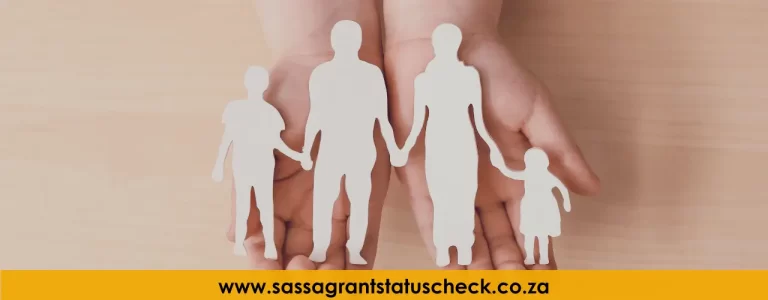SASSA Foster Child Grant: Application, Eligibility, Payments Guide
The foster child grant (also known as foster care grant) is financial assistance provided by SASSA to the foster parents to help them take care of their foster child. A foster child is a child who has been assigned to your care by a court due to circumstances such as being orphaned, desolated, tortured, neglected, or at risk. Foster parents will be responsible for providing all basic needs to their foster child, which includes food, clothing, shelter, medical care, and education.

Foster child grants are generally disbursed until the child reaches 18 years of age. If the child turns 18 but is still studying in secondary or high school, then the grant amount will be paid until they turn 21. The grant payments will stop when the child leaves school or starts earning income that exceeds the means test criteria.
Eligibility Criteria for SASSA Foster Child Grant
Before applying for the foster child grant, make sure that you fulfill the following criteria:
What is the SASSA Means Test For Foster Care Grant?
The means test is a method to determine the income of the foster child to make sure that only deserving children receive the grant, the income of foster parents will not be counted. The grant is only available to foster parents whose foster children meet certain financial criteria and are living in poverty.
The means test criteria for the foster child says that if the income of the foster child a year is less than twice of the annual foster child grant amount a year, then they are qualified for the grant.
Each grant type has different criteria for its means test to evaluate financial eligibility.
How much is the SASSA Foster Child Grant Amount?
According to the latest SASSA grants increase of April 1, 2025, the amount for foster child grants is R1,250 per month (per child). The grant amount is adjusted every 6 months on April 1 and October 1 to ensure that it remains sufficient to meet the needs of foster children.
How much does that Foster Child Grant Cost?
Applying for SASSA foster child grant is free of cost, and there is not any kind of service fee.
Foster Child Grant Applying Procedure
To begin the process of applying for the foster child grant, you need to have a court order that validates your legal position as the child’s foster parent. You can get the court order from the social worker of the Department of Social Development by making an appointment with them.
Once you have the court order, you can apply for a SASSA foster child grant in your nearest SASSA office branch by filling out the application form. You can also apply online by following the instructions on applying online through the SASSA services website.
If you are too old, sick, or have any disability issues, you may have a trusted family member or a friend to apply on your behalf. Granting someone permission to apply on your behalf requires you to fill out the Power of Attorney form and have it attested by a Commissioner of Oaths. Once the form is completed and signed, the person applying on your behalf should take the Power of Attorney form and a doctor’s note explaining why you can’t visit the SASSA office yourself.
The application forms are available at SASSA offices and should be completed in the presence of the SASSA officer. You can fill out the application yourself. In case you find it hard to fill it out yourself, then the officer will be here to help you in completing the application form. They will also take your interview (or from your appointed person). After taking the interview, they will inform you if you qualify for the grant.
After completing the application and interview, you will also receive the dated stamp receipt with the SASSA officer name who assisted you in the application and the application ID. Even if you are not qualified, you need to keep this receipt as proof of application.
Necessary Documents while Applying for Foster Child Grant
You must take the following documents (original or certified copies) along with you to the SASSA office when applying for foster child grant:
Processing Time for the Application of SASSA Foster Child Grant
It usually takes about 3 months to process applications for the foster child grant. The payments start after the approval of your application. Once the application is processed and your grant is approved, you will receive all the payments from the date you submitted your application. In case of application rejection, SASSA will send a letter with an explanation that why you’re not approved for the grant.
SASSA Foster Child Grant Status Check
Once your grant application is submitted, then you’ll also need to check the status regularly to stay updated. And the best part is that it can be easily traced by using a status check to see if the application is approved or declined or what is the current status of your application. After the approval of the application, the status should be checked frequently to stay updated about upcoming payments. SASSA foster child status check can be done through the following methods:

Through SASSA Official Website by Clicking Here

Through the Moya App Using Data Free Method

Through SMS To SASSA Number 082-046-8553

Through SASSA WhatsApp 082-046-8553

Contacting on SASSA Toll-Free No. 0800-601011
What to do next if SASSA Child Foster Grant Application is not Accepted?
If your grant application is declined, but you believe that the decision was made in error, you can request the SASSA to reconsider your application. If the reconsideration request is also denied, but you still disagree with the decision of SASSA, you have the right to appeal the decision of SASSA to the Ministry of Social Development at the National Department of Social Development. The appeal must be filed within 90 days from the day the application is submitted.
The Ministry of Social Development will review your appeal to make a decision. If they agree with you, they will overturn the SASSA’s decision and you will start receiving your grant payments. If your appeal is denied, you will be provided with a written explanation of the decision.
Understanding the SASSA Foster Child Grant Payment Process
Once your foster child grant is approved, you will start receiving payments from the date you applied. SASSA payment schedule is released every month as they don’t have any fixed dates.
SASSA will pay you the grant payments through the following three methods (You need to opt for one):
If you want to receive your grant payments through a bank account, you will need to complete the Consent Form for Bank Payment of SASSA Grant and submit each of the following documents:
You can change your bank account or payment method any time by filling form in the welfare office. However, the payments will be received through the new payment method from the following month after the verification is completed.
If you are unable to collect the grant yourself due to any reason such as old age, disability etc., you can nominate someone to collect payments on your behalf.
SASSA Foster Child Grant Balance Check
The SASSA balance check service allows you to check the remaining balance of your grant. By checking your balance, you can stay updated with your funds to manage your finances and make informed decisions about your grant money. After your foster child grant application is approved and you start receiving grant payments, you may need to check your balance regularly by following methods:
SASSA Foster Child Grant Reviews
The foster child grant will review the expiry of the court order, which is currently two years, The court order will expire every two years, and SASSA will conduct a review every time the court order expires. The reviews are conducted to ensure that the foster child still meets the means test criteria of the grant and that the circumstances are not improved yet. It is also to verify if you are still alive. To make the review process easier, you should always keep your application up to date whenever your child’s circumstances change.
SASSA will send you a written notice before the three months of review or the deadline to submit your life certificate (proof that you are still alive). The written notification will also provide details about the date and location of the review.
For individuals who receive their grant through a bank, institution, or agent, you must annually submit the life certificate to the SASSA office. If you are bedridden, SASSA officials will visit your home to conduct the review. Upon the conclusion of your review, you will obtain a compliance receipt.
Grant Suspension Reasons
The following reasons may lead to the grant suspension:
Restoration of the Grant
If you believe that your grant was suspended in error or if you have a disagreement with SASSA’s decision, you have the option to submit an appeal to the Ministry of Social Development at the National Department of Social Development within 90 days of the suspension.
Reasons for Lapsing of the Foster Child Grant
Your foster child grant will lapse if one of the following conditions occurs:
Responsibilities of the Beneficiaries
As a SASSA grant holder, you also need to fulfill some responsibilities:
You must keep the SASSA updated in the above scenarios to avoid any interruption or suspension in your grants, as SASSA sends notices and updates to the address you submitted in the application. If your address or contact information is updated and you did not inform the SASSA, it may cause the suspension of your grants, as SASSA will not be able to contact you.
Contact SASSA
Should you have additional questions, feel free to reach out to SASSA through the following channels:

